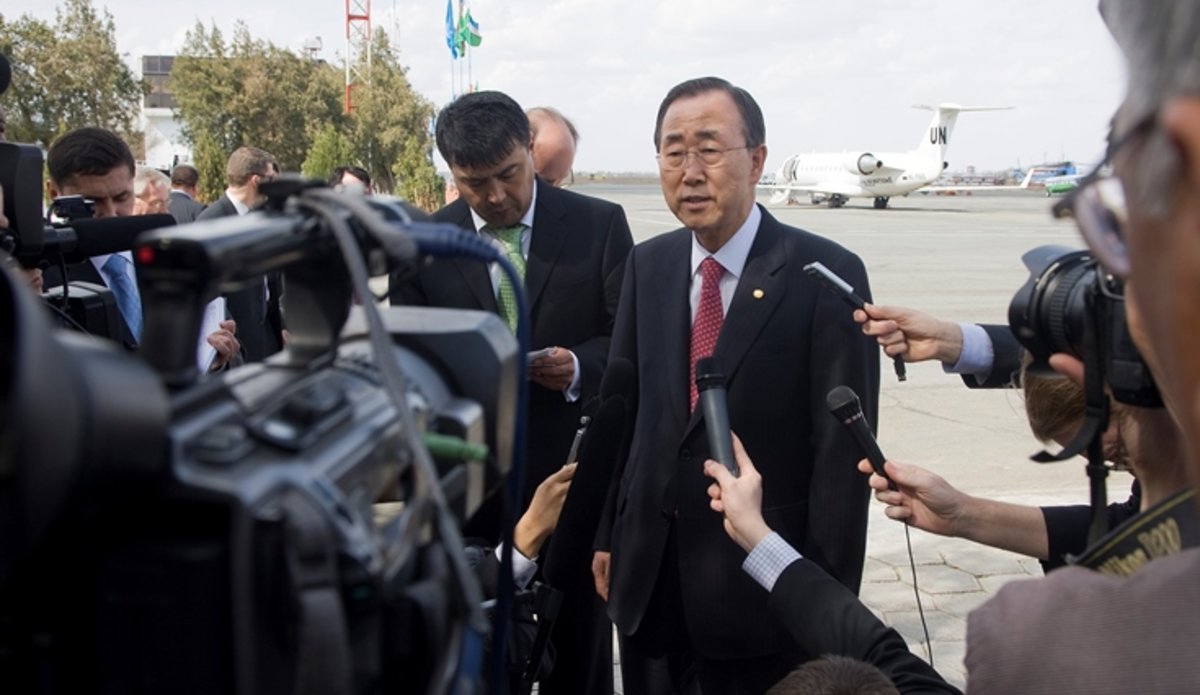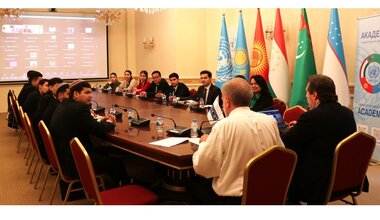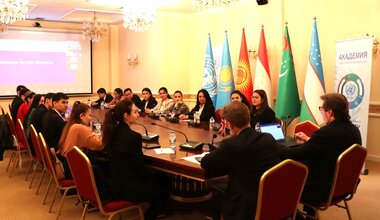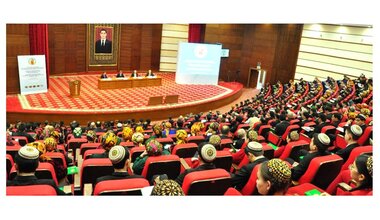UN Secretary-General's press conference before leaving Uzbekistan
TASHKENT, Uzbekistan
The UN Secretary-General's press conference before leaving Uzbekistan.
SG: Good afternoon ladies and gentlemen of the media. Thank you very much for your participation.
As I am leaving Uzbekistan after a one-day visit, I would like to say a few words about what I have discussed with the Uzbek leadership.
First of all, I would like to thank President Karimov and the people of Uzbekistan for their welcome and warm hospitality during my stay.
I have just concluded a very constructive and enriching visit on a range of regional and global issues.
In Central Asia, as elsewhere, dialogue and regional cooperation are key to economic and social growth and modernization.
Regional problems demand regional solutions ? especially those as complex and inter-related as water and energy resources. Uzbekistan has an important role and responsibilities.
My visit to the Aral Sea, yesterday, was a stark reminder of the importance of properly managing the environment and our earth's natural resources.
In this regard, today President Karimov and I discussed the 2009 Summit of the International Fund for Saving the Aral Sea. I was encouraged by its decisions and message and urge that it be put into practice.
I particularly emphasized the importance of resolving problems of cooperation and competition over natural resources in ways that benefit the entire region and respect the interests of all nations.
We also discussed other points of regional cooperation and security, including Uzbekistan's chairmanship of the Shanghai Cooperation Organization and the forthcoming summit in Tashkent.
We welcomed the signing in Tashkent today of the Joint Declaration on UN / SCO Cooperation, and I thanked the President for his support of the establishment of the UN Regional Centre for Preventive Diplomacy.
Uzbekistan has an important role in ensuring peace and stability in Central Asia, including the establishment of the Central Asian Nuclear Weapons Free Zone and the fight against drug trafficking and terrorism.
I thanked the President for his long-term engagement on the issues related to Afghanistan and its stability. I also commended his efforts to improve humanitarian conditions in the country and to facilitate Afghanistan's long-term economic growth and recovery by providing electricity, transport links and opportunities for trade and regional integration.
On human rights: I am encouraged by the steps Uzbekistan has taken to abolish the death penalty.
I further urged President Karimov and his government to work fully with the United Nations and to meet all obligations under international human rights law and the many treaties to which it is a signatory.
I also urged that the government fully cooperate with the Human Rights Council in Geneva, including the recommendations of the Universal Periodic Review, and also its request that independent observers be allowed to visit the country.
I welcomed the commitment by the president to achieve the Millennium Development Goals and extend its opportunities of growth and social advancement to all citizens.
I congratulated President Karimov for the successful progress, particularly on education and health care where more than half of the budget has been invested.
I encouraged the President to take further steps to modernize the country, in particular those that would draw on the well-known traditional entrepreneurship of its hard-working people. A robust civil society will contribute substantially to the greater benefit of Uzbekistan.
The United Nations stands ready to assist the government in all these areas and I look forward to our renewed partnership.
As I told President Karimov, Central Asia is central to our wider world ? and to the many regional and global challenges facing us.
Thank you.
Q: [translated from Russian] Uzbekistan is currently the chairman of the Shangai Cooperation Organization. Noting the signing of the Joint Declaration between the SCO and the United Nations, how would you comment on the cooperation between these organizations?
SG: I am happy to have signed this Joint Declaration with the Secretary-General of the Shanghai Cooperation Organization on the occasion of my visit to Uzbekistan [which now] holds the presidency. This is part of the United Nations' efforts to increase its partnership with regional organizations like the SCO.
The United Nations and the Shanghai Cooperation Organization share the same principles and goals in peace, security, development and human rights and all the important principles of the United Nations. This partnership will give an added impetus and capacity to the United Nations when we are working together with all Member States and regional organizations in addressing regional and global challenges -- in particular, when we are working to fight against international terrorism, extremism, and also drug trafficking, organized trans-boundary crimes. And we will also work together in major projects of development pillars.
Q: Do you believe your message on human rights got through to the Uzbek leadership and what was the reaction of President Karimov?
SG: Uzbekistan, as one of the leading countries in this part of the world, has taken up to now important measures in promoting and enhancing human rights including the death penalty [being] abolished.
Also, they have joined the International Criminal Court and also they have joined all major conventions and treaties concerning human rights. I understand that they are the signatories to almost 60 international conventions or agreements on human rights. This is commendable. I stressed the importance of (turning) these commitments into deeds. I have further encouraged, as I said in my statement, to implement the recommendations of the Human Rights Council by inviting some special rapporteurs or special experts who can provide assistance and technical advice. I expect that the Uzbekistan government will lead by example.
 UN
UN





